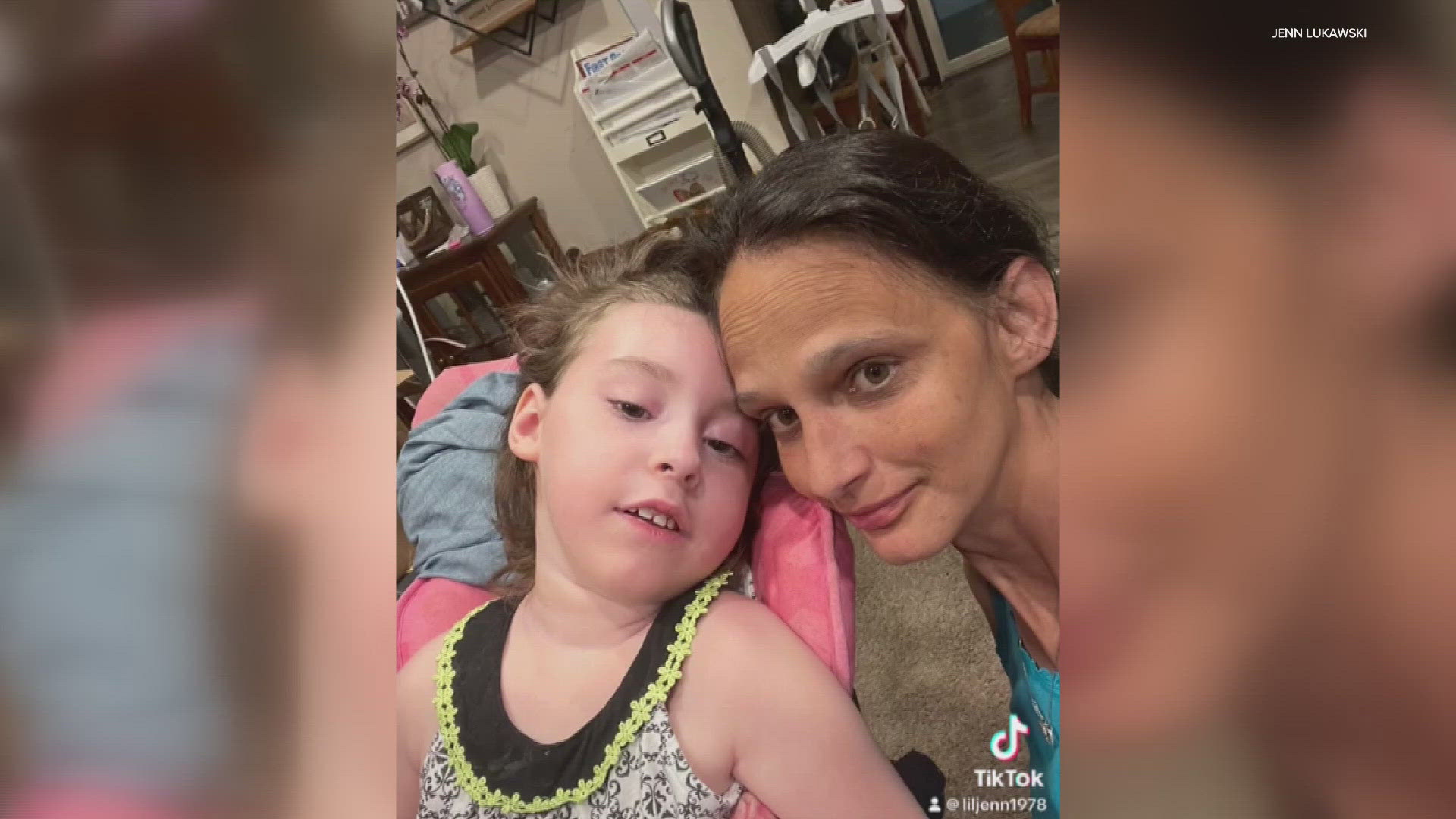INDIANAPOLIS — Big changes kicked in Monday for how the state pays the parents of medically complex kids to take care of their children at home.
The changes were announced in January by the Family Social Services Administration as a way to cut how much the state spends on Medicaid every year.
Last year, FSSA found a nearly $1 billion shortfall in what they predicted they'd spend on Medicaid and what they'll actually spend by next July.
To make up for some of that, FSSA changed how parents are paid by the state to take care of their kids with constant medical needs.
Already, one mother said the transition has left her in a terrible spot.
"We thought we had everything in order for her," said mom Jenn Lukawski.
When FSSA announced changes to how it pays parents and guardians to care for their medically complex kids, Lukawski and her husband Brian, who are guardians to 6-year-old Sophia, went into action.
"I had to go to court and ask a judge not to be her guardian," said Lukawski.
RELATED: Parents of disabled children sue Indiana over Medicaid changes addressing $1 billion shortfall
That's because under the FSSA changes, the state will no longer pay some parents or guardians an hourly rate to care for their medically complex kids under the attendant care program.
Instead, parents will now get paid a daily rate, under a different program, the structured family care program.
Lukawski wanted to stay with the first program, not because of how she got paid, but because the attendant care program also provided Sophia with two additional caregivers, that come in during the day, so Lukawski can sleep, after caring for Sophia during the night.
"A lot of our kids, a lot of our families, it's team work," Lukawski explained.
Now Sophia's care team's in jeopardy after Lukawski discovered, she's still Sophia's guardian because of what she calls a clerical error through the courts.
Lukawski said she alerted FSSA to the mistake, but said they responded by pausing payment for Sophia's care completely.
"We have no services right now," Lukawski said, adding that her current situation shows how complicated each family's case can be when trying to either transition to the structured family care program or stay on the original attendant care program.
A group of concerned parents met with the agency and Governor Eric Holcomb earlier this year to express some of their concerns about a transition which was only announced in January.
At a news conference Monday, FSSA talked about their work on the transition.
"Through this process we really tried to stay engaged with stake holders and provide additional supports and resources to help families through the transition," Indiana's Medicaid Director Cora Steinmetz said.
Some say the state has not done enough to help families.
"There's a lot of 'what ifs' out there and families in these situations certainly deserve better than that," said Kim Dodson with The Arc of Indiana.
Lukawski is living with those "what ifs" right now.
"It's a waiting game," said Lukawski.
A game she said already-exhausted parents of medically complex children are too tired to play.
Two families have filed a federal lawsuit against FSSA over the changes to the attendant care program.
FSSA would not comment on the pending lawsuit.

